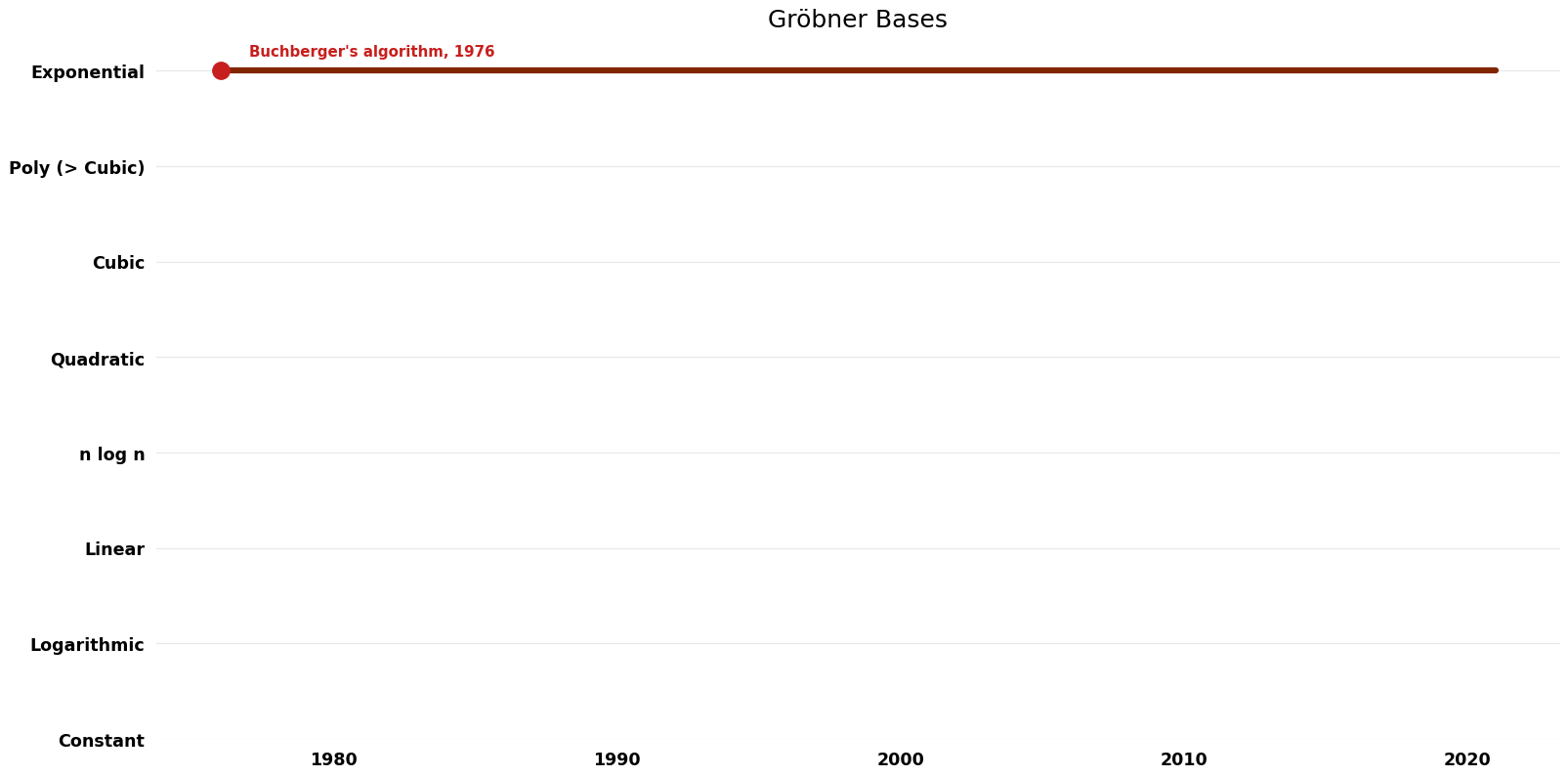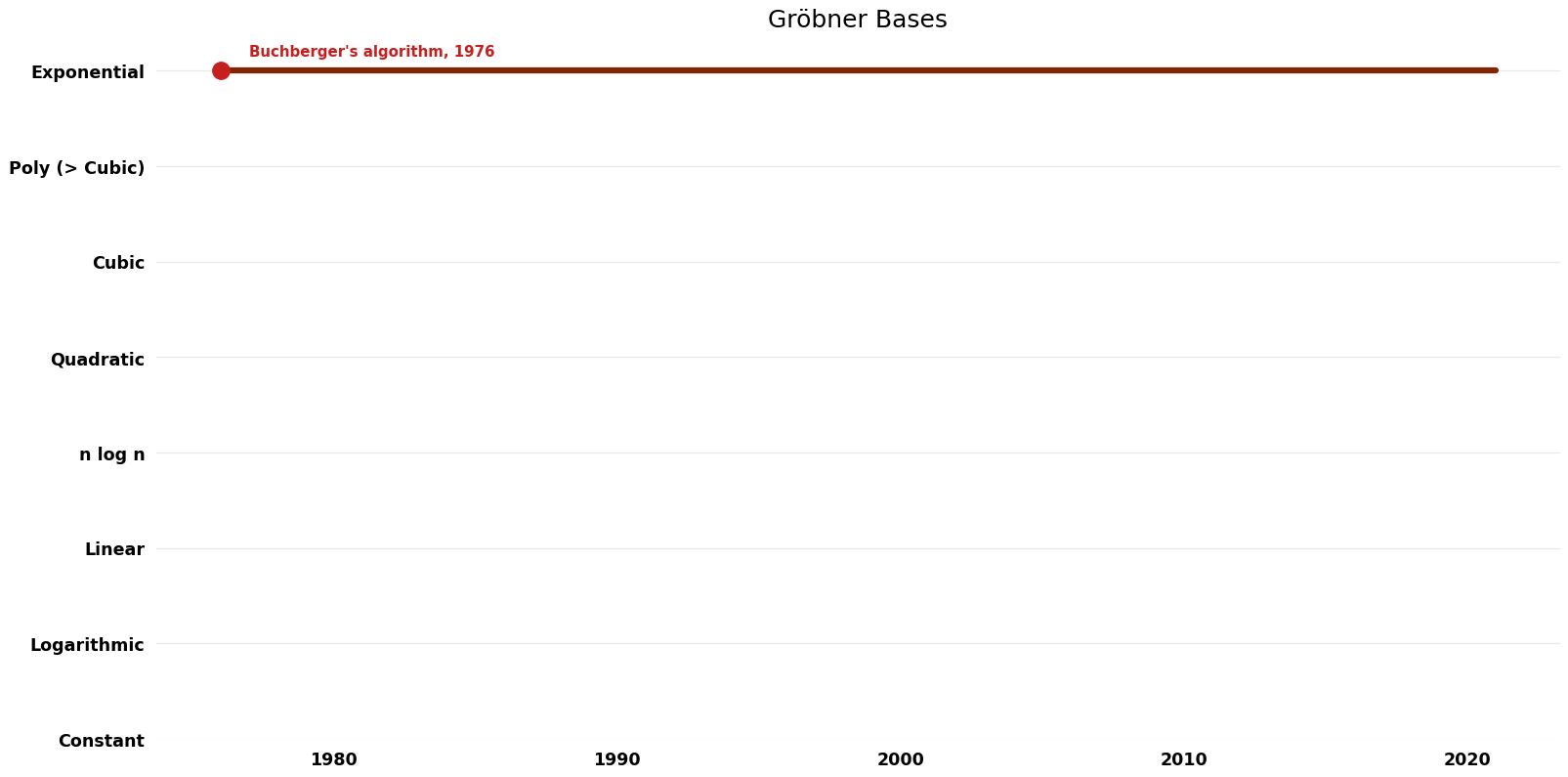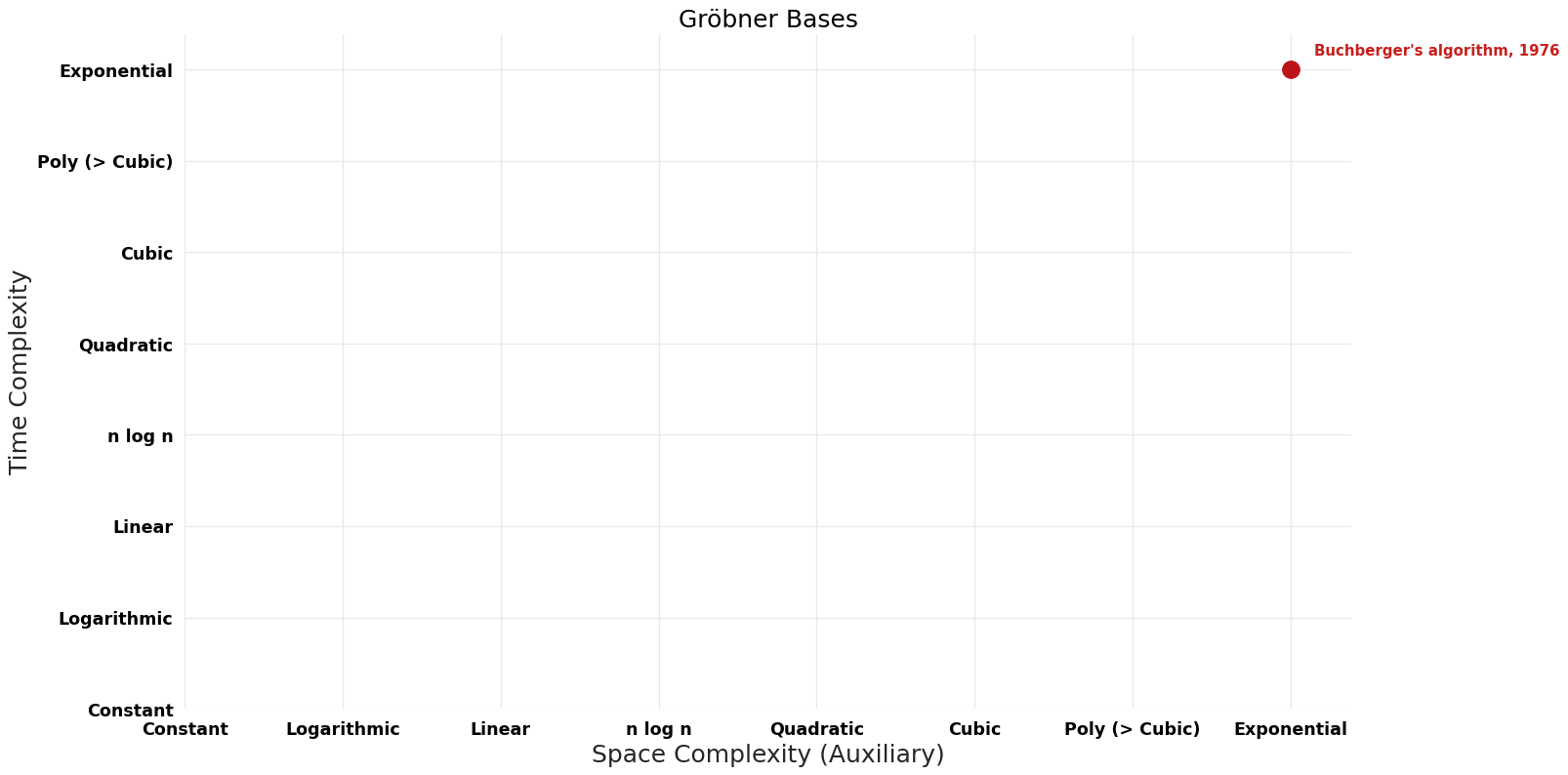Gröbner Bases (Gröbner Bases)
Revision as of 11:21, 15 February 2023 by Admin (talk | contribs) (Created page with "{{DISPLAYTITLE:Gröbner Bases (Gröbner Bases)}} == Description == In mathematics, and more specifically in computer algebra, computational algebraic geometry, and computational commutative algebra, a Gröbner basis is a particular kind of generating set of an ideal in a polynomial ring $K(x_1, \ldots ,x_n)$ over a field $K$. As an algorithmic problem, given a set of polynomials in $K(x_1, \ldots,x_n)$, determine a Gröbner basis. == Parameters == <pre>n: number of...")
Description
In mathematics, and more specifically in computer algebra, computational algebraic geometry, and computational commutative algebra, a Gröbner basis is a particular kind of generating set of an ideal in a polynomial ring $K(x_1, \ldots ,x_n)$ over a field $K$. As an algorithmic problem, given a set of polynomials in $K(x_1, \ldots,x_n)$, determine a Gröbner basis.
Parameters
n: number of variables in each polynomial d: maximal total degree of the polynomials
Table of Algorithms
| Name | Year | Time | Space | Approximation Factor | Model | Reference |
|---|---|---|---|---|---|---|
| Buchberger's algorithm | 1976 | d^{({2}^{(n+o({1})})}) | d^{({2}^{(n+o({1}))})}?? | Exact | Deterministic | Time |
| Faugère F4 algorithm | 1999 | $O(C(n+D_reg, D_reg)$^{\omega}) where omega is the exponent on matrix multiplication | $O(C(n+D_{reg}, D_{reg})$^{2})? | Exact | Deterministic | Time |
| Faugère F5 algorithm | 2002 | $O(C(n+D_reg, D_reg)$^{\omega}) where omega is the exponent on matrix multiplication | $O(C(n+D_{reg}, D_{reg})$^{2})? | Exact | Deterministic | Time |


